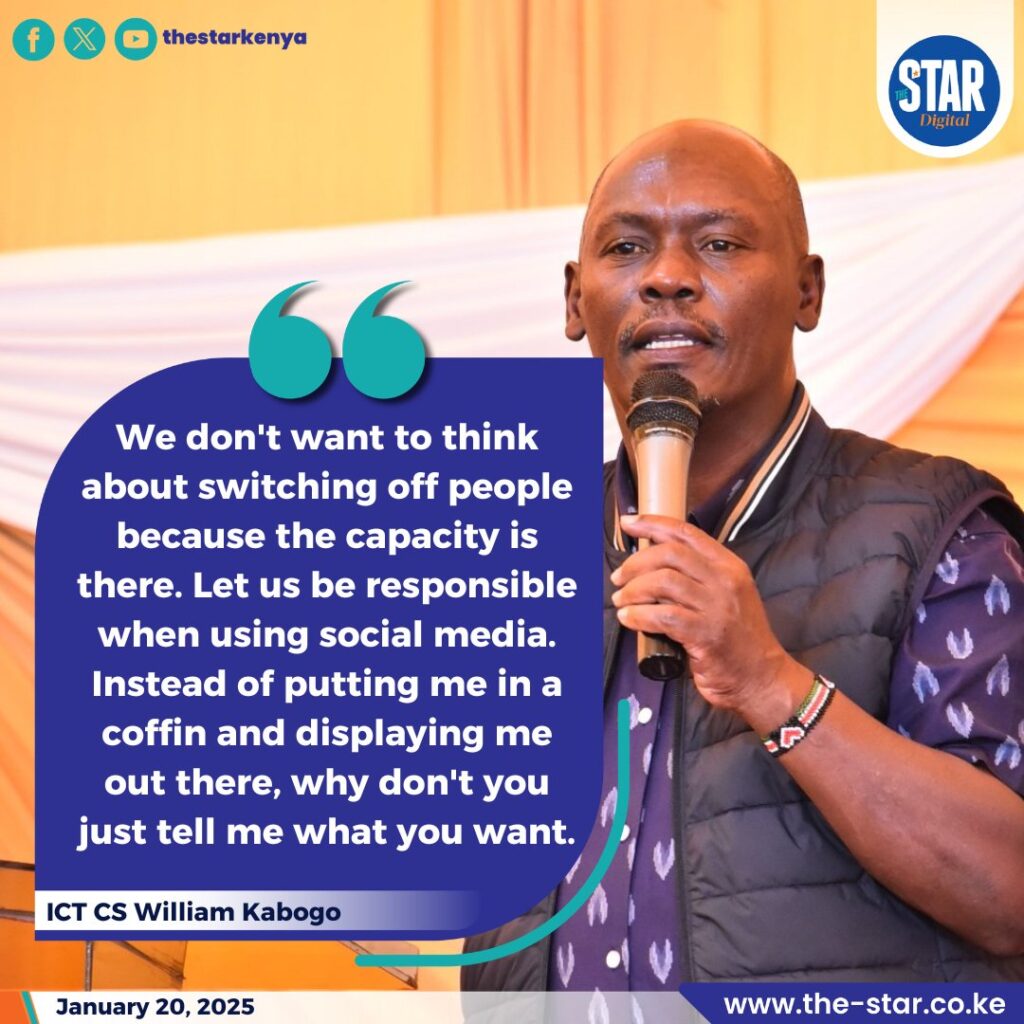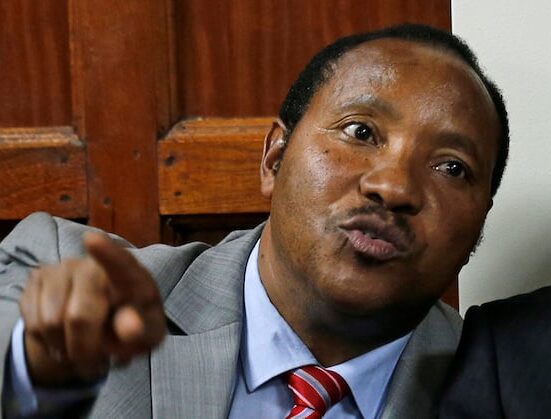In a statement on Monday evening, the newly appointed Cabinet Secretary for Information and Communication, William Kabogo, addressed the youth, specifically Gen Z, with an unexpected plea.
He humbly asked them not to “put him in a coffin,” a metaphor he used to describe being insulted or prematurely declared dead on social media.
Kabongo vowed to fulfill their requests, emphasizing that leaders are willing to support young people if approached respectfully.

Kabongo explained that when a leader who commands respect across the nation is falsely reported as dead or subjected to harsh insults online, it causes significant mental and emotional distress.
He described it as a “horror nightmare” that can deeply affect a leader’s well-being and even their life expectancy.
In his appeal to Gen Z, he urged them to abandon the practice of cyberbullying and, instead, directly express their needs and concerns to leaders.
He assured them that such an approach would yield positive results.
“Instead of putting me in a casket, just face me directly and ask me what you want, and I will give it to you, and that’s how a good citizen should behave,” he said.
Kabongo also emphasized the importance of using social media responsibly.
According to The Star, the CS noted that online platforms hold immense power to connect people and drive positive change but are often misused for spreading negativity and misinformation.
He argued that leaders are not enemies of the youth and that their role is to serve and provide solutions to societal challenges.
He also mentioned President William Ruto’s readiness to support young people, stating that the head of state is willing to offer opportunities and “goodies” if Gen Z embraces civility and uses digital platforms for constructive purposes.
Kabongo’s message highlights the growing concern among leaders about the impact of social media culture on governance and public perception.
Many leaders feel vulnerable to the unchecked power of online platforms, where false information and personal attacks spread rapidly.
Kabongo’s appeal to Gen Z reflects an effort to bridge the gap between leaders and the younger generation by fostering dialogue and mutual understanding.
Kabongo’s remarks have sparked varied reactions, with some praising his humility and willingness to engage with the youth, while others questioned whether his promises would translate into tangible actions.
Regardless, his statement indicates the importance of fostering respect and accountability in how both leaders and citizens interact, especially in the digital age.












Leave feedback about this